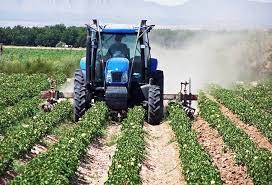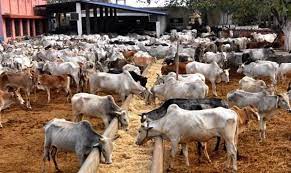As the Ukraine and Russia war continue to affect the world economy, an international organisation, Oxfam Nigeria has called on the Nigeria government to urgently implement universal and adequate social protection measures to support Nigerians.
According to Oxfam, this will ensure the poorest and most vulnerable people have social protection.
Oxfam Nigeria in a statement signed by its communication officer Rita Abiodun said the crisis in Ukraine has caused food prices to skyrocket globally in the last few weeks with some analysts estimating a 20% increase.
The statement said the situation was adding pressure to the already devastating global food shortages that many fear would lead to hunger.
“Ukraine and Russia are important players on the global food export market. Russia is the top wheat exporter with a share of almost 16 percent of the global market, while Ukraine is the third largest exporter of wheat at almost 10 percent of the global market. Importantly, for a number of countries with high levels of hunger, Ukraine and Russia have an outsized impact, as they import a significant share of their wheat from Ukraine or Russia.
“The most important problem, however, is affordable access to food, not its availability. Many people in low-income countries (including Nigeria) cannot afford the prices of goods like bread which, in many countries, is made from imported wheat. The reason. Supply chain disruptions and climate-driven disasters, like drought, coupled with conflict, have driven prices up when wages have been
unable to keep pace.
“The UN estimated before the crisis that the food price in Sub-Saharan Africa was 30-40% higher than the rest of the world (taking into account comparative levels of GDP per capita).
“One in five people (282m) were under-nourished, and 93 million in 36 African countries were suffering extreme levels of hunger (women and children being hardest hit).
“In Sub-Saharan Africa, one in three children under five is stunted by chronic under nutrition; and two out of five women of childbearing age are anaemic because of poor diets.
“In West Africa, the number of people in need of humanitarian assistance could rise to 35.7 million during the lean season from June to August 2022,” the statement reads.
On the short term solution, Oxfam called on donor governments to bridge the gap between what people can pay and higher prices, saying there was a need to deliver the much needed aid to people facing severe hunger that have been impacted by the rise in food prices.
Making projections for the future, the NGO said governments must support the development of sustainable, resilient and local food systems, based on small-scale production and family farming that would form the very foundation of food security.
According to them, the “current crisis underscores the urgency and importance of this.”
Oxfam International Country Director in Nigeria, Dr. Vincent Ahonsi, said “Nigeria needs a food system that works for everybody. This means a food system that can stand against shocks such as the climate crisis and rapid food inflation on international food markets, and does not contribute to environmental destruction.
“Nigeria government needs to provide the public funding necessary to create fair, gender-just, and sustainable food systems, particularly focusing on agro-ecological production which is inherently less dependent on imports of feed and agricultural input and more resilient to climate change impacts”.




